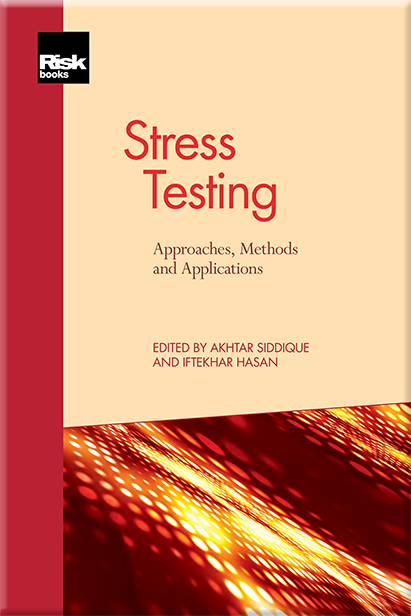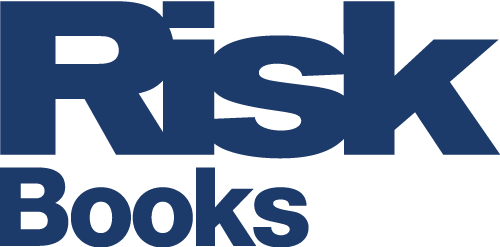Stress Testing: Approaches, Methods and Applications
Stress Testing: Approaches, Methods and Applications
Akhtar Siddique and Iftekhar Hasan
Couldn't load pickup availability
As a result of the financial crisis, stress testing now constitutes an extensive element of financial institutions’ risk management and capital adequacy assessments. However, definitions of what constitutes stress testing and how stress testing should be used have been in a state of flux since the financial crisis.
With Basel III, the Dodd–Frank Act and Interagency Stress Testing guidance in the US and CRD-IV in Europe, understanding the practicalities of stress testing in light of these regulatory practices and considerations is key. Whilst these different sets of guidance and regulation bring clarity with regards to stress testing expectations, multiple approaches towards solving very similar problems have emerged.
Stress Testing: Approaches, Methods and Applications analyses and expounds the various approaches and highlights those most appropriate with regard to the guidance.
Editors Akhtar Siddique (Office of the Comptroller of Currency) and Iftekhar Hasan (Fordham University) have assembled contributions from key figures directly involved in the measurement, regulation and application of these new stress testing practices. Chapters include:
- Liquidity Risk: The Case of the Brazilian Banking System
- The Evolution of Stress Testing Counterparty Exposures
- A Framework for Stress Testing Banks’ Corporate Credit Portfolio
- EU-wide Stress Test: The Experience of the EBA
The authoritative guide and reference tool for stress testing, this book is essential for risk managers, regulators and consultants who want a clearer understanding of the methods, tools and uses of stress testing in different risk areas.
Share

More information
About the Author
Akhtar SiddiqueAkhtar Siddique is the Deputy Director of Enterprise Risk Analysis Division of the Comptroller of the Currency (OCC), Washington, USA where he has worked from 2003. He manages a staff of financial economists who provide technical assistance for examinations of national banks in Pillar 2, operational risk, ALLL, economic capital, enterprise wide stress testing, participate in policy initiatives and conduct independent research. He directly participates in examinations and intra and interagency supervisory and policy initiatives, particularly related to Counterparty Credit Risk, Economic Capital, Valuation Issues, ALLL, Stress Testing and Pillar 2. Akhtar has authored numerous papers published in peer reviewed journals including the Journal of Finance, Review of Financial Studies, Management Science and Journal of Accounting Research. He holds a PhD in finance from Duke University and taught finance at Georgetown University prior to joining the OCC.
Iftekhar HasanIftekhar Hasan is the E. Gerald Corrigan Chair in International Business and Finance at the Schools of Business of Fordham University, New York. His research focus is primarily in the area financial intermediation, capital market and corporate finance. He serves as a scientific advisor of the Bank of Finland and a Research Associate at the Berkley Center of New York University. Iftekhar has held several visiting positions at universities and organisations such as the University of Strasbourg, France; University of Limoges, France; University of Carlos III, Spain; University of Rome-Tor Vergata, Italy; EPFL, Switzerland; National Taiwan University, Taiwan; Academy of Economic Studies, Romania, Stern School of Business, USA, Federal Reserve Bank of Atlanta and International Monetary Fund. He is the managing editor of the Journal of Financial Stability and an associate editor in several other journals. Iftekhar has over 225 publications in print, including 12 books and edited volumes, over 150 peer reviewed journal articles in reputed finance, economics, management, operation research, accounting, and management information system journals. Iftekhar received his PhD from University of Houston and also received an Honorary PhD from the Romanian American University in Bucharest.
Table of contents
Foreword
Mark Levonian (Senior Deputy Comptroller, Office of the Comptroller of Currency)
Introduction: evolution of stress testing in the financial industry
Akhtar Siddique (Office of the Comptroller of Currency) and Iftekhar Hasan (Fordham University)
1 Governance over stress testing
David Palmer (Federal Reserve Board)
2 Stress testing and other risk management tools
Akhtar Siddique (Office of the Comptroller of Currency) and Iftekhar Hasan (Fordham University)
3 Stress testing for market risk
Dilip K. Patro (Office of the Comptroller of Currency), Akhtar Siddique (Office of the Comptroller of Currency) and Sun Xian (Johns Hopkins University)
4 The evolution of stress testing counterparty exposures
David Lynch (Federal Reserve Board)
5 Operational risk: an overview of stress testing methodologies
Bakhodir Ergashev (Federal Reserve Bank of Richmond) and Brian Clark (Office of the Comptroller of Currency)
6 Stress testing of bank loan portfolios as a diagnostic tool
Paul Calem and Arden Hall (Federal Reserve Bank of Philadelphia)
7 Stress test modelling for loan losses and reserves
Michael Carhill and Jonathan Jones (Office of the Comptroller of Currency)
8 A framework for stress testing banks’ corporate credit portfolio
Vincent Martin, Olivier deBandt, Nicolas Dumontaux and Denys Médée, (Autorité de Contrôle Prudentiel)
9 EU-wide stress test: the experience of the EBA
Paolo Bisio, Mario Quagliariello and Demelze Jurcevic (European Banking Authority)
10 Stress testing across international exposures and activities
Robert Scavotto and Robert Skinkle (Office of the Comptroller of Currency)
11 Liquidity risk: the case of the Brazilian banking system
Benjamin Miranda Tabak, Solange M. Guerra, Sergio R. S. Souza and Rodrigo C. C. Miranda (Central Bank of Brazil)
12 Determining the severity of macroeconomic stress scenarios
Kapo Yuen (Federal Reserve Bank of New York)

